Search
Remove Ads
Advertisement
Summary 
Loading AI-generated summary based on World History Encyclopedia articles ...
Search Results
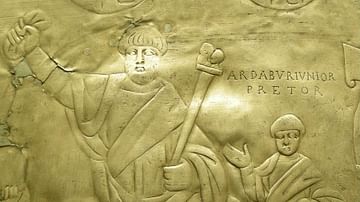
Article
The Isaurians and the End of Germanic Influence in Byzantium
Germanic influence reigned in the Roman Empire from the end of the 4th century CE through the 5th. Germanic individuals took important posts in the government and the military, and Germanic tribes penetrated ever further into lands that had...
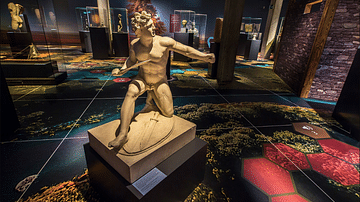
Interview
Interview: Ave Caesar! Romans, Gauls and Germanic tribes on the Banks of the Rhine
In ancient times, the Rhine was a major communications artery stretching right across Europe, allowing trade, contacts, and cultural exchange between different regions. Then as now, the river was of immense importance strategically for controlling...

Definition
Religion in the Ancient World
Religion (from the Latin Religio, meaning 'restraint,' or Relegere, according to Cicero, meaning 'to repeat, to read again,' or, most likely, Religionem, 'to show respect for what is sacred') is an organized system of beliefs and practices...
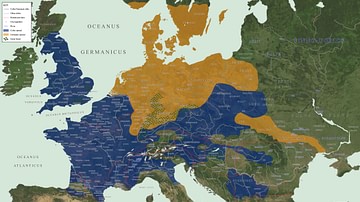
Image
Map of Celtic and Germanic Tribes
This map shows the various Celtic and Germanic tribes around circa 52 BCE.
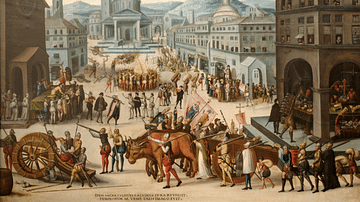
Definition
French Wars of Religion
The French Wars of Religion (1562-1598) were a series of eight conflicts between Protestant and Catholic factions in France lasting 36 years and concluding with the Protestant King Henry IV of France (r. 1589-1610) converting to Catholicism...
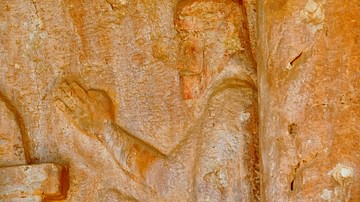
Definition
Ancient Persian Religion
Ancient Persian religion was a polytheistic faith which corresponds roughly to what is known today as ancient Persian mythology. It first developed in the region known as Greater Iran (the Caucasus, Central Asia, South Asia, and West Asia...
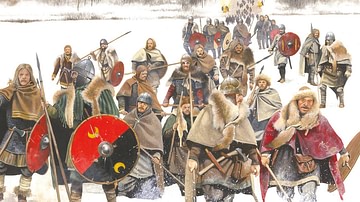
Image
Germanic Forces Cross the Rhine, 406 CE
Germanic forces cross the Rhine and invade the Roman Empire in 406 CE. Illustration by Zvonimir Grbasic.
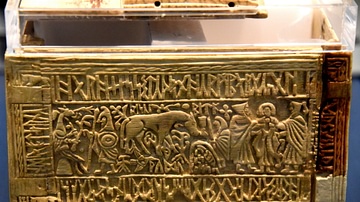
Image
Germanic Legend Panel from the Franks Casket
This replica panel (the original is the Museo Nazionale del Bargello, Florence, Italy) refers to a lost Germanic legend about a figure called Hos who, the runic inscriptions relates, is made to suffer by Ertae. Its mysterious imagery includes...
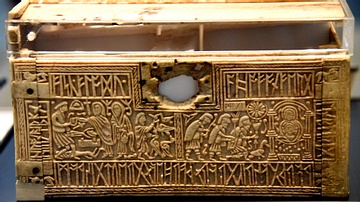
Image
Germanic & Christian Tales from the Franks Casket
The left half of this front panel of the casket refers to the Germanic tale of Weland, a smith who was imprisoned and lamed by a legendary king. Weland took revenge by killing the king's sons and turning their skulls into drinking cups. Here...

Definition
Roman Religion
In many societies, ancient and modern, religion has performed a major role in their development, and the Roman Empire was no different. From the beginning Roman religion was polytheistic. From an initial array of gods and spirits, Rome added...